Clifford Garstang's Blog, page 49
July 17, 2015
My books
July 16, 2015
Emerging Author Finalist, Indiana Authors Award
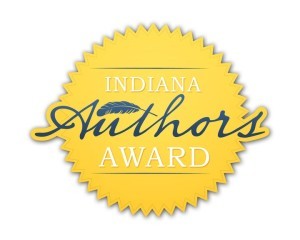 I’m thrilled and honored to share with you that I have been selected by The Indianapolis Public Library Foundation as
an Emerging Author finalist for the 2015 Eugene & Marilyn Glick Indiana Authors Award!
I’m thrilled and honored to share with you that I have been selected by The Indianapolis Public Library Foundation as
an Emerging Author finalist for the 2015 Eugene & Marilyn Glick Indiana Authors Award!
Please help me show support for the Indiana Authors Award and this year’s pool of winners and finalists by:
Sharing the this news on Facebook and Twitter with the hashtag #INauthor, and by tagging@INAuthorsAward on Twitter and/or Facebook
Following @INAuthorsAward on Twitter and “Like” them on Facebook
Purchasing individual or full table tickets for the Award Dinner on Oct. 10, 2015
Attending the Indy Author Fair on Oct. 10, 2015 at Central Library in downtown Indianapolis
Please join me in supporting the Indiana Authors Award and the many talented authors with Indiana roots!
I was also a finalist in 2014, and I enjoyed traveling to Indianapolis for the awards dinner, meeting the other winners and finalists, and mingling with local writers, readers, and supporters of the Indianapolis Public Library.
This year, the National Winner of the IAA is poet Marianne Boruch. The Regional Winner is poet Adrian Matejka. And the other two finalists for the Emerging Author award are Laura Bates and Skila Brown. I’m really looking forward to meeting them all in October!
June 25, 2015
“Shut up!” he explained.
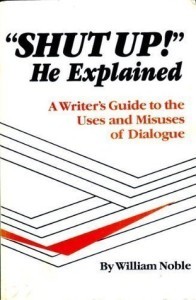 Invariably in a fiction workshop the subject of dialogue tags will come up. A dialogue tag is the bit that’s slapped onto the end of the stuff in quotation marks. “It’s critically important,” he said.
Invariably in a fiction workshop the subject of dialogue tags will come up. A dialogue tag is the bit that’s slapped onto the end of the stuff in quotation marks. “It’s critically important,” he said.
Conventionally–at least these days–writers are advised to stick with “says” or “said” (depending on the tense being used) for dialogue tags, with an occasional variation either for variety’s own sake or because what the passage is meant to convey. It’s not inappropriate to use “replied” or “answered” if the dialogue is given in answer to a question, for example. I generally avoid other tags, though, and that’s what I advise other writers. In fact, even “said” can often be left out if it’s clear who the speaker is.
The dialogue itself should be able to convey this meaning, however, so that we don’t usually need “shouted” or “exclaimed” or “screamed,” or whatever. William Noble has an excellent discussion of this subject in Shut Up! He Explained: A Writer’s Guide to the Uses and Misuses of Dialogue, now available in an inexpensive Kindle edition.
But I was reminded of this discussion recently in a workshop. We had finished going through the submissions from the writers and the workshop leader, Sarah Bowlin, Senior Editor at Henry Holt, handed out copies of “Just So” by Edith Pearlman, which appeared a few years ago in Virginia Quarterly Review. Early in this terrific story we get this exchange of dialogue:
“You compassionate people,” said the younger just last week, making compassionate rhyme with terminate.
“You’re verbing an adjective,” smiled Tony, verbing a noun.
I love this dialogue, but in the class I objected–as I do whenever I encounter it in student writing–to the use of “smiled” as a dialogue tag. For one thing, Tony’s response is funny, and so I would already guess he’s smiling. But more importantly, “smile” isn’t a verb of speech. We can speak words by saying them, shouting them, yelling them, whispering them, etc., but we cannot “smile” words. One can smile while saying them (although even that’s tricky), but there is no sound associated with smiling. Bowlin thought it was fine, as long as it wasn’t overused, and obviously Pearlman’s editor at VQR didn’t object strongly enough to change it.
If I had been the editor, however, . . .
May 26, 2015
2015 Reading: Driving the King by Ravi Howard
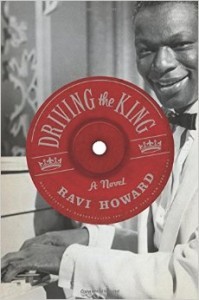 Driving the King: A Novel by Ravi Howard
Driving the King: A Novel by Ravi Howard
I had the pleasure of hearing Ravi Howard read from and discuss this novel at the Virginia Festival of the Book earlier this year. It’s a very engaging book and I recommend it.
May 22, 2015
Residency at Rivendell Writers’ Colony
 Part of me would like to keep this place a secret, but I have a lot of writer friends who would love Rivendell Writers’ Colony, so that wouldn’t be very nice. Rivendell has only been open a couple of years. In fact, I first heard about it when I was last at the Sewanee Writers’ Conference, which was 2013, and it was only then getting started. I applied for this spring, and here I am, in the middle of a two-week residency. If you need some distraction-free time in a gorgeous setting to get some writing done, you should look into it.
Part of me would like to keep this place a secret, but I have a lot of writer friends who would love Rivendell Writers’ Colony, so that wouldn’t be very nice. Rivendell has only been open a couple of years. In fact, I first heard about it when I was last at the Sewanee Writers’ Conference, which was 2013, and it was only then getting started. I applied for this spring, and here I am, in the middle of a two-week residency. If you need some distraction-free time in a gorgeous setting to get some writing done, you should look into it.
Pictured above is Rivendell Manor, a 100-year-old house near Sewanee, TN, on the Cumberland Plateau, that has been beautifully restored, 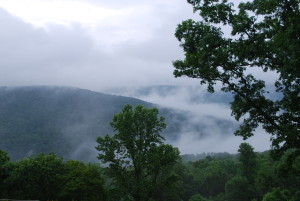 complete with amazing shared areas and very comfortable bedrooms/studios. And if you can keep from gazing out the window at the amazing views (the house sits on a bluff overlooking “Lost Cove”), you might actually get some work done. (This picture at the right is taken from my studio.) There are also living/work spaces in a few cottages on the expansive, wooded property.
complete with amazing shared areas and very comfortable bedrooms/studios. And if you can keep from gazing out the window at the amazing views (the house sits on a bluff overlooking “Lost Cove”), you might actually get some work done. (This picture at the right is taken from my studio.) There are also living/work spaces in a few cottages on the expansive, wooded property.
 Although there is no formal connection with the University of the South, which is a little over 2 miles away, there certainly is cooperation (use of library, the gym, etc., is available), and as it happens all five of the writers currently in residence have attended the writers’ conference there, 4 of us as fellows.
Although there is no formal connection with the University of the South, which is a little over 2 miles away, there certainly is cooperation (use of library, the gym, etc., is available), and as it happens all five of the writers currently in residence have attended the writers’ conference there, 4 of us as fellows.
And what, you non-writers might ask, does one do at a writers’ colony? Write, ideally. And I am writing. And editing. I have a nearly completed manuscript of a novel and I aim to finish the manuscript while I’m here so I can send it to my “beta reader” in early June to get feedback. While I could do the same thing at home, there are too many distractions there and I really need to immerse myself in the writing in order to get the book done.
Speaking of which, back to work.
Everywhere Stories Named International Book Award Finalist
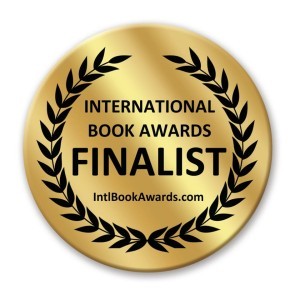 I am very pleased to say that Everywhere Stories: Short Fiction from a Small Planet has been named a finalist for the International Book Award in the Fiction Anthologies category.
I am very pleased to say that Everywhere Stories: Short Fiction from a Small Planet has been named a finalist for the International Book Award in the Fiction Anthologies category.
The book is a compilation of 20 stories by 20 authors set in 20 countries. Stories are set on every continent, including Antarctica. And it turns out that no matter where you are, it’s a dangerous world. Read about back streets in Cuba (Tim Weed), street bandits in Costa Rica (Alden Jones), murder in Italy (Joseph Cavano), cancer in St. Petersburg (Teresa Hudson); wild boar in Germany (Jay Kauffmann); and much more.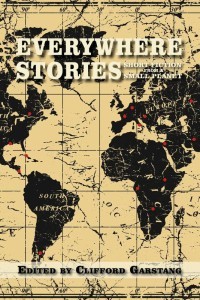
I had a great time pulling this collection together. When we put out the public call for submissions the response was overwhelming–more than 650 stories flooded the inbox and it took months to read them all and select these stories. The great thing is that we’re moving toward work on a second volume–20 more stories, 20 more countries! We’re gratified by the response to Volume 1 and are proud of being named an IBA Finalist.
May 12, 2015
2015 Reading: What is Visible by Kimberly Elkins
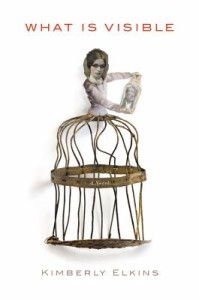 What Is Visible: A Novel by Kimberly Elkins
What Is Visible: A Novel by Kimberly Elkins
My review of this excellent novel is posted at Best New Fiction: Review of What is Visible
April 24, 2015
Prime Number Magazine Issue #71
 We published the latest issue of Prime Number Magazine this week. Issue #71 includes fiction by Kevin Winchester and Jeffery Hess, an essay by N. West Moss, and poetry by Ruth Foley, Chera Hammons, Kelly Nelson, and Gabriel Welsch, plus a review by Sara McCraw Crow of Megan Mayhew Bergman’s book Almost Famous Women.
We published the latest issue of Prime Number Magazine this week. Issue #71 includes fiction by Kevin Winchester and Jeffery Hess, an essay by N. West Moss, and poetry by Ruth Foley, Chera Hammons, Kelly Nelson, and Gabriel Welsch, plus a review by Sara McCraw Crow of Megan Mayhew Bergman’s book Almost Famous Women.
Thanks to our editors: Amy Monticello, Val Nieman, and Jon Chopan and our publisher, Kevin Morgan Watson at Press 53.
Reflections on the Literary Magazine Rankings
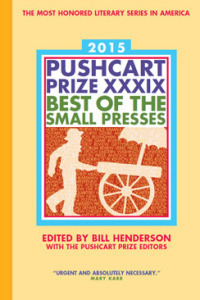 At AWP in Minneapolis, several people came up to me at the Press 53/Prime Number Magazine booth to tell me how much they appreciated the Pushcart Prize Literary Magazine Rankings I compile each year on this site. (If you’re not familiar with the rankings, click on that link, check it out, and come back.) I was really pleased to hear those comments. I do think the rankings are a valuable tool for writers who are submitting their work to magazines, so I’m happy to hear from users of the lists.
At AWP in Minneapolis, several people came up to me at the Press 53/Prime Number Magazine booth to tell me how much they appreciated the Pushcart Prize Literary Magazine Rankings I compile each year on this site. (If you’re not familiar with the rankings, click on that link, check it out, and come back.) I was really pleased to hear those comments. I do think the rankings are a valuable tool for writers who are submitting their work to magazines, so I’m happy to hear from users of the lists.
I’m frequently at a conference or residency where the subject of literary magazines comes up. Invariably someone says, “There’s a guy who posts a ranking of literary magazines on his website.” It gives me great pleasure to be able to say, “I’m that guy.”
Some people put little stock in rankings, and in many areas I respect that view. It doesn’t matter what the rank of a magazine (or college, or MFA program, or whatever) is if it is a good fit for you. That’s still the most important question writers have to ask themselves when submitting their work. But a little guidance doesn’t hurt, and that’s where the lists come in.
On the other hand, the lists are really only the tip of the iceberg. There are thousands of magazines out there, both print and online, that are NOT on the lists. What about them? For example, the magazine I edit, Prime Number Magazine, is not on my list. I think we have a pretty good magazine, and we’ve achieved some recognition, but we have yet to win a Pushcart Prize or a Special Mention. So, according to the list criteria, we aren’t ranked. So I’m glad writers find the list useful, but we all need to think outside the list when looking for the perfect venue for our work.
The list is a tool. If you find it helpful, I’m glad.
April 21, 2015
2015 Reading: The Dark Will End the Dark by Darrin Doyle
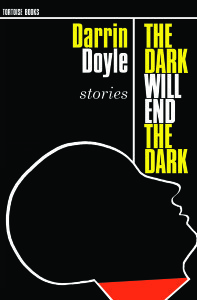 The Dark Will End The Dark by Darrin Doyle
The Dark Will End The Dark by Darrin Doyle
Dark stories with twists, sort of like George Saunders. See my full review at Best New Fiction.




